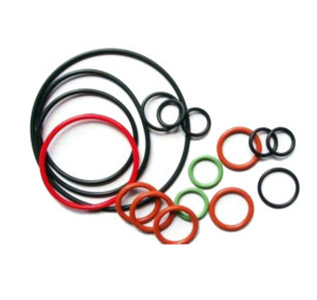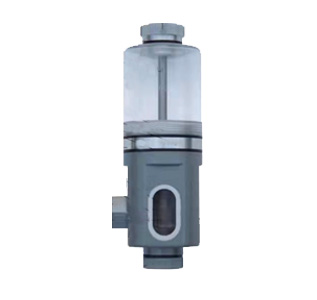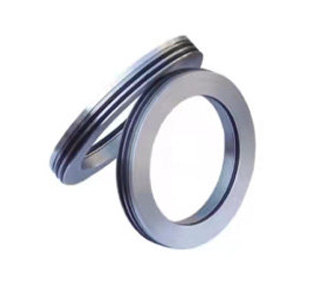NEWS
Company News
Introduction of the mechanical seal flushing scheme Plan53
TIME:2023-11-27
API682 Plan53 The mechanical seal flushing scheme system consists of a series seal or a double end seal with isolation fluid,The sealing tank works under a certain pressure (generally higher than 10% of the pressure of the sealed medium). The source of the pressure and the cooling of the isolation fluid are different. According to the API682 standard, the Plan53 mechanical sealing flushing system is divided into three types: Plan53A, Plan53B and Plan53C.
First of all, Plan53 (subdivided into 53A, 53B and 53C) is designed for pressure double end sealing, which is to provide liquid circulation with the front and outer seals of the isolation liquid tank above the pressure of the medium, and the circulation of the isolation fluid is driven by the pumping ring.
Therefore, both the pressure of 53A, 53B and 53C isolation fluid is higher than the pressure of the conveying medium. The difference between the three lies in the way of providing this pressure is different!
(1)PLAN53A
Through the external tank to provide clean fluid to the sealed cavity, the fluid in the tank is higher than the pressure of the sealed medium, and then recycled through the pump.Plan53A External pressure source, built-in coil cooling, and equipped with pressure, liquid level and other alarm indication devices;Storage tank is pressurized by inert gas (generally nitrogen), isolation fluid pressure is controlled by an external gas regulator, the isolation fluid pressure, external sealing cavity pressure should be higher than the pressure of the sealing medium 0.14~0.17MPa, if the pressure is too large to cause the internal seal flow changes, make the outer seal premature failure.Its advantages are that the external pipeline system is relatively simple, the inert gas pressure application is more common, more convenient to use, if the seal leakage is large through the inspection of the storage tank liquid level can be found.The main disadvantage is that the pressurized gas directly acts on the isolation fluid. If it is easy to dissolve into the liquid when the gas pressure is high, so that the gas enters the sealing cavity, it will lead to more severe leakage, thus adding hidden danger to the operation of the seal. Generally, the gas cannot be used when the pressure exceeds 2.0MPa.
(2)PLAN53B
It is through an airbag booster to pressurize the sealing fluid circulation system, and then through a pump, with air or water cooling to take away heat.Plan53B The pressure is provided by the built-in inflatable skin bag, and the isolation fluid is cooled by direct cooling by fin tube or water cooler; the external pipe system provides the isolation fluid for the outer seal of the pressurized double-end sealing device, and the pressure to the circulation system.The pre-pressurized biliary accumulator provides pressure to the circulation system and flow is maintained by an internal pumping ring.The heat is removed in the system by an air-cooled or water-cooled heat exchanger, replacing the reservoir in Scheme Plan53A.The advantage is that it solves the problem of dissolution between the steam body and the isolation solution in scheme 53A, which can be compensated by the airbag reservoir. The disadvantage is that the biliary pressure accumulator provides the pressure. When the pressure gauge indicates that the pressure is not enough, the gas needs to be replenished in time.
(3)PLAN53C
The isolation fluid is indirectly pressurized by the medium through the booster tank, and is used for the medium pressure fluctuation condition. The liquid storage tank is the booster tank (piston type accumulator).Plan53C The pressure of the circulation system is provided by the piston accumulator (booster piston). The lower part of the piston is connected to the sealing medium after the pressure relief bushing. The pressure at the bottom of the piston accumulator is generally the pressure of the sealing cavity (connected to the sealing cavity).Some booster piston and cooler design as one, some booster piston and cooler are divided into two bodies.Integrated design of flushing system, isolation fluid powered by the sealing pump ring, into the upper part of the pressure piston, by balancing the area of the piston, different area of the higher pressure connected to the sealed pump ring, to automatically realize the pressurization of circulation isolation liquid, thus isolation fluid through mechanical seal, heat exchanger constantly circulation.After pressurization, the sealing fluid circulates into the sealing chamber to cool and flush the sealing end surface. The coil cooling isolation fluid is set inside the outer jacket of the pressure piston cylinder; the flushing system of the split design enters the cooler under the circulation of the pumping ring to cool and flush the end surface of the seal to realize the automatic pressurization of the isolation fluid.
Its outstanding advantage is that because the pressure of the isolation fluid by the piston accumulator comes from the sealing cavity, the pressure of the isolation fluid automatically tracks the operation condition, and can still follow the pressure fluctuation even when the system fluctuates.The disadvantage is that the accumulator is in direct contact with the medium. If it is used to deal with corrosive or abrasive medium, it is necessary to consider the corrosion and abrasion, and the corrosion of the medium should be considered when selected.
Previous:Buffer solution (gas) and isolation liquid (gas)
Next:Several misunderstandings in the mechanical seal maintenance for the pump
+86-0335-8085559
Junming (Hebei) Machinery and Equipment Manufacturing Co., Ltd.
Address:No.1 Huaihe Road, Qinhuangdao Economic and Technological Development Zone
Domestic:+86-0335-3066990
Overseas:+86-0335-8085559
Domestic:info@junmingmeco.com
Overseas:sales@junmingmeco.com
Website:www.junmingmeco.com
-

官方微信


 Recommendation
Recommendation

